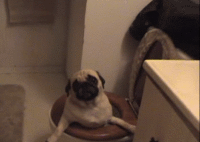I’m not an expert on anything.
I’m a 21 year old college student whose main proficiency is that of most other adolescents and young adults: consuming content on the internet.
(pictured: me, doing what I do.)
As a member of this generation that has grown up alongside the growth of the internet and technology, my role as a member of this global network has developed with me. We’re in Web 2.0, which means we have multi-way communication and things are focused around user-generated content. No other form of media has immediate, direct communication between businesses, organizations, political figures, regular people . . . anyone. And it’s been around for less than 20 years.
It’s easy to forget just how new our connectedness really is. And with each new generation, the memory of how it was before will fade more and more. Just 50 years ago, the thought of having a face-to-face conversation with someone on another continent would’ve been mind-blowing. 100 years ago there were still parts of the United States that didn’t have bathrooms inside their house.
(#blessed)
We’ve proven that we know how to have fun with it – through our Caturdayz, our memes, and the way we’re able to have thousands of vines making fun of a music video less than a week after the video releases (looking at you, Drake). The most re-tweeted tweet in Twitter’s (short) history is a photo. Facebook is prioritizing videos and photos in its algorithm. Instagram is now the most popular social media site for youth. We love visual content; we eat it up. Don’t get me wrong, there’s nothing inherently wrong with that, but shouldn’t there be a balance between our entertainment and our engagement in advancing society?
(For the record, this one’s my favorite.)
We’re so much more fortunate, globally-informed, and equipped to do something about it than any generation has ever been. We’ve already begun to use our advantage for good: through the internet’s ability to crowdfund and expose the real lives of people, donors from over 100 countries raised over 1 million USD for a Brooklyn middle school in need and over 2 million USD to help end bonded labor in Pakistan. Those are only two examples of the countless wonderful things that have been done through this medium. But the sky is the limit on how much good we can do with our ability to spread information worldwide in less than a day.
We have the opportunity to be proactive, not reactive to all of the things happening in today’s world. At least five articles show up in my Facebook newsfeed daily on a new innovation, idea, or discovery that has been made. What if we opened a dialogue with each other and pooled our insights to see where these new things might take us – not just immediately, but five, ten, or even twenty years down the road? Imagine the foresight we have working as a unit. Think of all of the potential crises that could’ve been avoided if we would have had global communication. With a worldwide conversation made up of multiple future-oriented viewpoints, maybe we would have seen that a pesticide that was developed in the early 1900s would turn into a chemical weapon in WWI and the main ingredient for Nazi gas chambers in WW2. Or on a lighter note, we might have discovered the alternate use for a Cincinnati man’s wallpaper cleaner much sooner.
(Spoiler: it’s Play-Doh. ^^ALSO WEREN’T THOSE THE GREATEST?)
We have the ability to make a large impact on the world, and that’s what this blog is about: using the technology we were lucky enough to be born into to think proactively about the world. Ideas act like viruses, and we’ve seen better than anyone how they spread across the cells of this network. And the best part is, you don’t have to be an expert on anything to have an opinion.
I mean, I’m not an expert either.



